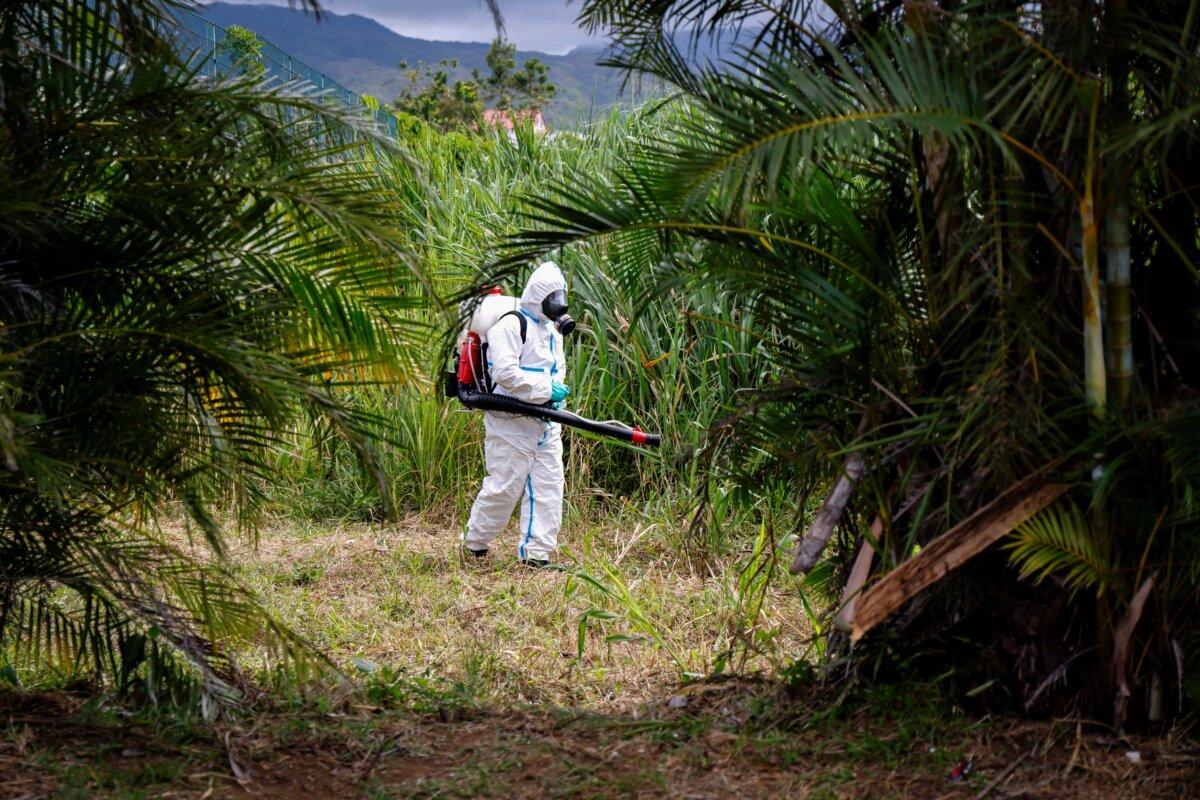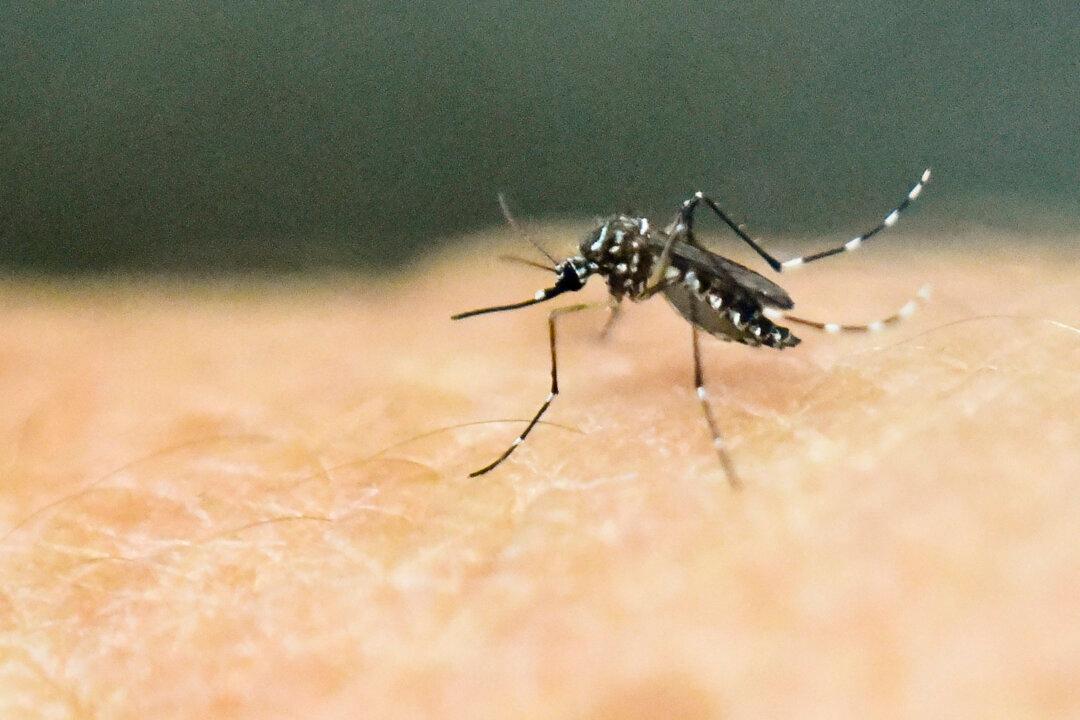Chikungunya fever has spread rapidly in many places in Guangdong Province and spilled over to other parts of China. Local residents told The Epoch Times that the Chinese communist regime is forcing residents into quarantine and asking them to pay for it, which many people cannot afford.
As of July 24, the total number of officially confirmed cases of Chikungunya fever reported in Foshan City, Guangdong Province, and elsewhere in China reached more than 4,014, according to Chinese state media. The first case was reported on July 8.
In the city, 53 hospitals have been designated to treat the disease, with more than 3,600 isolation beds set up and preparations made for expansion to a quarantine facility, according to state media.
Because of the Chinese communist regime’s record of censoring data it considers politically sensitive, as was seen with its underreporting of COVID-19 infections and related deaths in late 2019, the true number of known Chikungunya fever infections could be higher.
Chikungunya fever is a viral disease mainly transmitted to humans by mosquitoes. Its symptoms are similar to dengue fever. Patients usually experience fever, severe joint pain, muscle pain, headache, fatigue, and rash. It has the potential to be fatal.
There is no specific antiviral treatment for Chikungunya. Deaths from the disease are rare but do occur, especially among vulnerable populations such as infants and the elderly.
The outbreak has also spread from the hardest-hit Shunde District of Foshan City to the provincial capital of Guangzhou City, as well as Yangjiang City in western Guangdong Province, more than 124 miles away. A case of Chikungunya fever occurred in Yuexiu District of Guangzhou, according to Chinese media reports. The Yangjiang City Center for Disease Control and Prevention reported on July 25 that three cases of Chikungunya fever have been diagnosed in the area.
The Macau Health Bureau, which is independent from the Chinese communist regime’s health authorities, also reported a case of Chikungunya fever on July 18. The patient is a Macau resident who visited relatives in Shunde District of Foshan City from July 8 to July 17.
The Chikungunya virus has also spread to northern China. The Beijing Center for Disease Control and Prevention issued a prevention reminder on July 22, warning of occasional cases allegedly imported to Beijing from abroad. However, Beijing officials have not released any data.
The Chikungunya virus is mainly spread by the white mosquito (Aedes albopictus), also known as the Asian tiger mosquito, Sean Lin, assistant professor in the Biomedical Science Department at Feitian College and former U.S. army microbiologist, told NTD, a sister outlet of The Epoch Times.
“This type of mosquito is currently more common in Guangdong and Guangxi provinces in China and Southeast Asia,” he said, noting that in the past few years, “this type of mosquito has moved northward in China, so other provinces should also be careful.”
Meanwhile, the World Health Organization has raised concerns of another Chikungunya virus epidemic. The WHO said it was noticing the exact same early warning signs as were seen with a major outbreak two decades ago and wanted to prevent it from happening again.
“We are calling for urgent action to prevent history from repeating itself. There is no particular treatment for chikungunya, so people need to avoid mosquito bites,” Dr. Diana Rojas Alvarez, a medical officer at the WHO, told reporters on July 22.
“WHO is currently supporting member states by deploying and strengthening laboratory diagnosis, risk communication and community engagement, training clinical workers, and strengthening surveillance and mosquito control.”
To prevent the spread and infection of Chikungunya virus, according to the WHO, local mosquito control is the key, along with emptying and cleaning containers that contain water on a weekly basis and disposing of waste.

Mandatory Paid Quarantine
Similar to how the Chinese regime handled the COVID-19 pandemic, Chikungunya patients in China are being placed in forced quarantine, which they are being asked to pay for out of their own pocket, according to Chinese residents and doctors.The Chinese regime’s health authorities are currently saying that home quarantine is not “recommended” and instead, “quarantine at hospital is recommended” for Chikungunya patients.
A doctor at Beijiao Hospital, also known as Shunde District Third People’s Hospital, said that “home isolation is not allowed at the moment,” and it depends on testing results. “Only those with negative testing results can be discharged from the hospital. Currently, no one can conduct the test themselves, and everyone has to go to the hospital for testing.”
The doctor, who spoke on condition of anonymity, added that the quarantine hospital uses screen doors, windows, and mosquito nets and that patients are treated with traditional Chinese medicine.
A laboratory employee who does virus testing in mainland China told The Epoch Times that Chikungunya fever is not included in the Class A testing category. According to mainland China’s infectious disease regulations, only Class A infectious diseases require mandatory quarantine. However, the Chinese regime is now using Class A disease standards to handle Chikungunya, and accordingly now require isolation.
A local villager in Foshan, who didn’t give his name because of safety concerns, told The Epoch Times on July 24 that his movements were controlled as soon as he entered the hospital for testing for Chikungunya.
Describing what happened when he was under observation at the hospital and wanted to leave the observation room temporarily, he said: “I was stopped when I got close to the door of the observation room. Later, my blood test result came out negative. Then, I was allowed to leave. Those who tested positive were taken to register for hospitalization by staff.”
Local residents said in social media posts that the mandatory hospital quarantine for Chikungunya is aimed at making money off the people. One patient in Guangdong showed his hospital bill for quarantine in a video posted on social media, while saying: “It costs nearly 500 yuan [about $70] a day to be quarantined at the hospital. I can’t afford it.”




